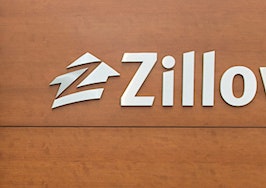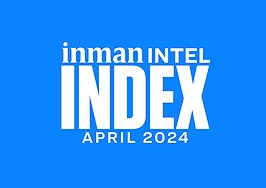The newest technology-based companies trying to reinvent the housing-brokerage business are the iBuyers. Opendoor is the best known, now a unicorn with an implicit market value of $2 billion, the class including Knock, Redfin Now, and OfferPad. (A “unicorn” is a startup with a stock value over $1 billion which may or may not have revenue, a profit, or a future).
All are trying to simplify the process of selling one home and buying another. All rely on faith among technologists that algorithms are clairvoyant, and among the public that anything on your phone is a good thing.
Selling and then buying is a pain. Aside from dovetailing in timing, and the excruciating process of bridge lending (which often fails), uncertainty is a killer. How do I know what I can buy until I know what I’m going to get for the home I have?
Thus all of these iBuyer models, including the one launched by Zillow itself last week, have in common guaranteed buyouts of the home you have. When each one of these new technology adventures appears, it helps me to think about how the business of housing got where it is, and where we might have seen similar structures before electrons were invented. These iBuyers have close cousins as business models in Wall Street brokerage houses.
Our standard approach to the sell-buy problem is to say to the seller, “Best of luck!” Unhelpful, even cruel. If a seller wishes to off-load the risk of selling a home — both the price and closing risk — the offload has a cost. The seller can always find a guaranteed buyer; the issue is how far the seller must discount the price.
My first experience with guaranteed buyouts was in the late 1970s when the entire U.S. was in an inflation-boosted housing boom, gasoline poured on top by the too-cheap mortgage credit of those days. Guaranteed buyouts were offered by listing agents, desperate for new listings because they were guaranteed to sell. Once the first listing agent in any market area began to offer buyouts at shallow discounts, other agents had to join the party, or no listings.
We are in a similar market today, nationally centered on cities, nearly all of which have enjoyed five years of average annual price appreciation near 6 percent. So, these iBuyers figure, with no commission in the deal, offer to buy at a 7 percent discount from algorithm value. The 7 percent fee will cover overhead, costs of resale, profit, and market risk, and continuing price appreciation will pay for the cost of capital to pay cash. And they’re not dumb — the iBuyers seem focused on lower-end homes in uniform neighborhoods, where algorithm value works best.
So far, so good. So try out the Wall Street model for applicability. A “market maker” for more than one hundred years has been a firm which offers simultaneously to buy or sell a security — of course with a spread between the low buy-side and higher sell-side. The firm thus uses its capital to “warehouse” securities, holding them for a better market, or just until a buyer can be found. Just like the aggressive listing agent, market-makers are a huge inducement to customers, relieving their risk in price or time — but often limiting their market-making to clients who bring other, more lucrative business. Market-making is deadly dangerous and often a loss-leader.
The key to all of this is spread. How much should it cost a seller to lay off the risks of price and certainty? Yet another similar model has long been the corporate buyouts of employees being transferred. Many of us have seen the expression on the face of those sellers when they see the buyout “number.”
Spreads vary with the object for sale and underlying market liquidity. On the Street, the smallest of all discounts is borne by sellers of Treasury bonds. Treasurys are all the same, there are $16 billion outstanding and in demand every day all over the world, and the spread between buy- and sell-side is often no more than 1/32nd of 1 percent.
As the object for sale becomes less and less uniform, or fewer and fewer outstanding, or buyers more scarce, spreads widen.
The most unique financial product on this planet is a home. No two the same, if only because all real estate has a unique legal description. A seller may be determined to get $500,000, and a listing agent will take the deal even though comps say $475,000, hoping the market will either appreciate or the seller will respond favorably to a real offer, if low. That’s a spread of five whole percentage points, and routine.
The iBuyers take the seller’s risk by inflicting a discount only a hair larger than the commission the seller already expects to pay — although the discount is applied to the algorithm’s price, certain to be lower than the seller’s hope.
Not a lot of sellers will play. Any experienced listing agent knows the futility of arguing with a seller’s faith in drawing to an inside straight. And the many thousands of fine listing agents stay in business because of the human skills necessary to guide sellers.
The iBuyers face a far worse problem. Housing markets can plod along in predictable fashion for years and then… stop. A whole town can turn into a Sherwood Forest of for-sale signs in a few weeks. The 1970s’ guaranteed buyouts died over one weekend — over Columbus Day that October, Paul Volcker changed the rules of money and mortgage rates went from 11 percent to 13 percent, if you could find a mortgage at all. The Lehman moment, September 2008… rates went down, but no buyers, just Great Recession. If you had guaranted to buy, intending to re-sell, you were suddenly a long-term investor — and under water.
On the Street among market makers, moments like those are known as “no bid.”
What do you mean, no bid? “We are not buying today.” Well, you’ll buy at a discount, won’t you? “No. We are not buying, period, at any price.”
A 7 percent discount from algorithm will not cover market risk. No way. Even without a market meltdown, the iBuyers face risk in algorithm error. There are reasons for most of today’s real estate customs and patterns, often forgotten or rationalized away, but reasons. These iBuyer models have all been tried, and the previous entrepreneurs left behind as greasy spots in the road.
But it will be nice to have some new buyers around for a while, even if all are immediately also sellers.
Lou Barnes is a mortgage broker based in Boulder, Colorado. He can be reached at lbarnes@pmglending.com.













